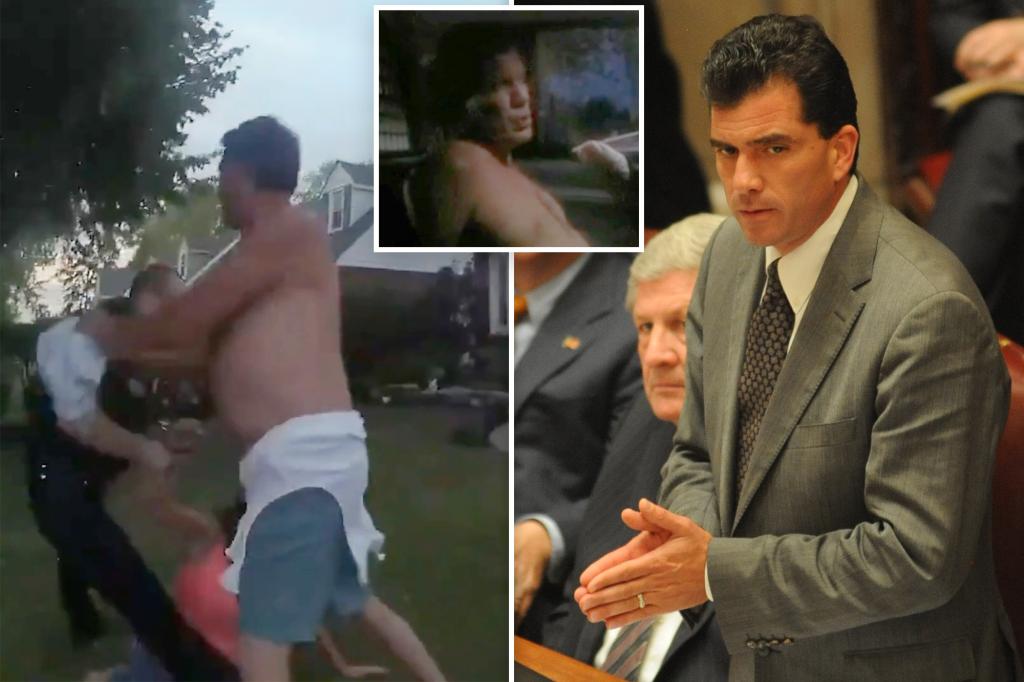The story involves the case of Judge Mark Grisanti in Buffalo, New York, who was involved in a physical altercation with his neighbors and police officers over a parking spot, which was caught on video. The New York State Commission on Judicial Conduct recommended that Judge Grisanti be removed from the bench, but instead, he received a formal reprimand from the commission. The incident occurred in June 2020, and despite the recommendation for removal, six panelists on the commission opted for a lighter punishment of public admonishment.
The altercation began when Grisanti believed his neighbors, Joseph and Gina Mele, were encroaching on his driveway. The neighbors parked two cars on opposite sides of Grisanti’s driveway, leading to a confrontation between the two parties. Profanities were exchanged, and a physical fight broke out before the police arrived. Grisanti’s wife, Maria, was also involved in the altercation and was ultimately handcuffed and brought to the ground by officers. Grisanti pushed one of the arresting officers during the scuffle, leading to his own arrest.
Aside from the parking spot brawl, the SCJC found that Grisanti engaged in misconduct by presiding over eight cases in which an attorney he sold his law firm to was involved. The attorney was paid by Grisanti after buying his practice for $50,000, but the judge failed to disclose these ties and payments in 2015. Grisanti also enrolled in counseling following the incident, which he attended until February 2021.
The neighbors involved in the altercation expressed their disbelief and disappointment in the SCJC’s decision to reprimand Grisanti instead of removing him from the bench. They felt that they were the victims in the situation and that unfair treatment had occurred. Despite the controversy surrounding the incident, Grisanti’s lawyers defended his character, stating that his behavior on that particular day did not warrant his removal from the bench. They emphasized Grisanti’s overall professional record as an exemplary judge who is diligent, hardworking, and courteous.
Moving forward, Grisanti has 30 days to request a review of the SCJC’s determination from the New York Court of Appeals. If he does not request a review, the censure will be finalized. The neighbors of Grisanti continue to believe that they were unfairly treated in the situation and feel that a cover-up may have taken place. Despite the differing opinions on the outcome of the case, it remains a controversial incident that has brought into question the integrity and conduct of a sitting judge.













